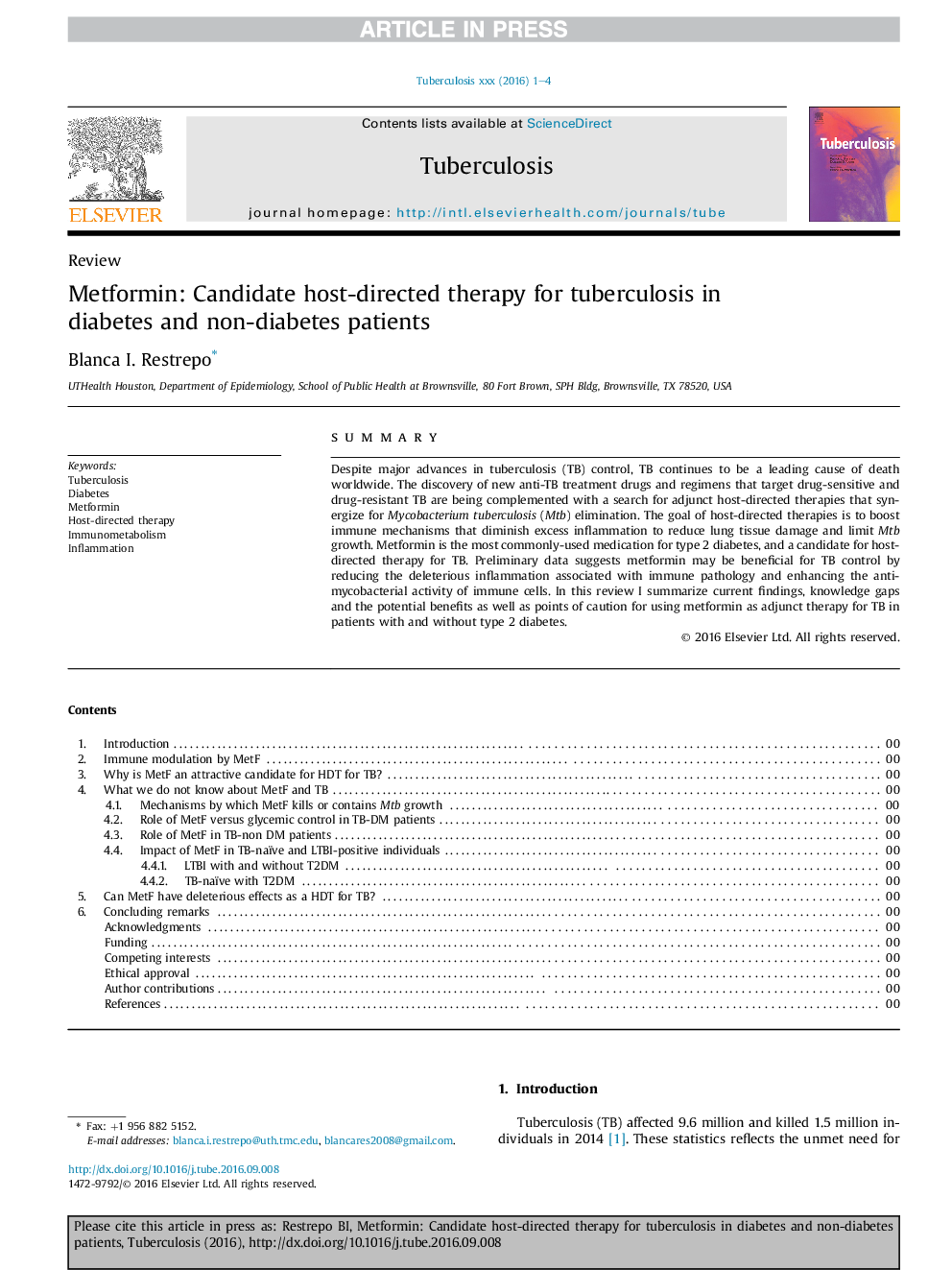| Article ID | Journal | Published Year | Pages | File Type |
|---|---|---|---|---|
| 5536191 | Tuberculosis | 2016 | 4 Pages |
Abstract
Despite major advances in tuberculosis (TB) control, TB continues to be a leading cause of death worldwide. The discovery of new anti-TB treatment drugs and regimens that target drug-sensitive and drug-resistant TB are being complemented with a search for adjunct host-directed therapies that synergize for Mycobacterium tuberculosis (Mtb) elimination. The goal of host-directed therapies is to boost immune mechanisms that diminish excess inflammation to reduce lung tissue damage and limit Mtb growth. Metformin is the most commonly-used medication for type 2 diabetes, and a candidate for host-directed therapy for TB. Preliminary data suggests metformin may be beneficial for TB control by reducing the deleterious inflammation associated with immune pathology and enhancing the anti-mycobacterial activity of immune cells. In this review I summarize current findings, knowledge gaps and the potential benefits as well as points of caution for using metformin as adjunct therapy for TB in patients with and without type 2 diabetes.
Related Topics
Life Sciences
Immunology and Microbiology
Applied Microbiology and Biotechnology
Authors
Blanca I. Restrepo,
